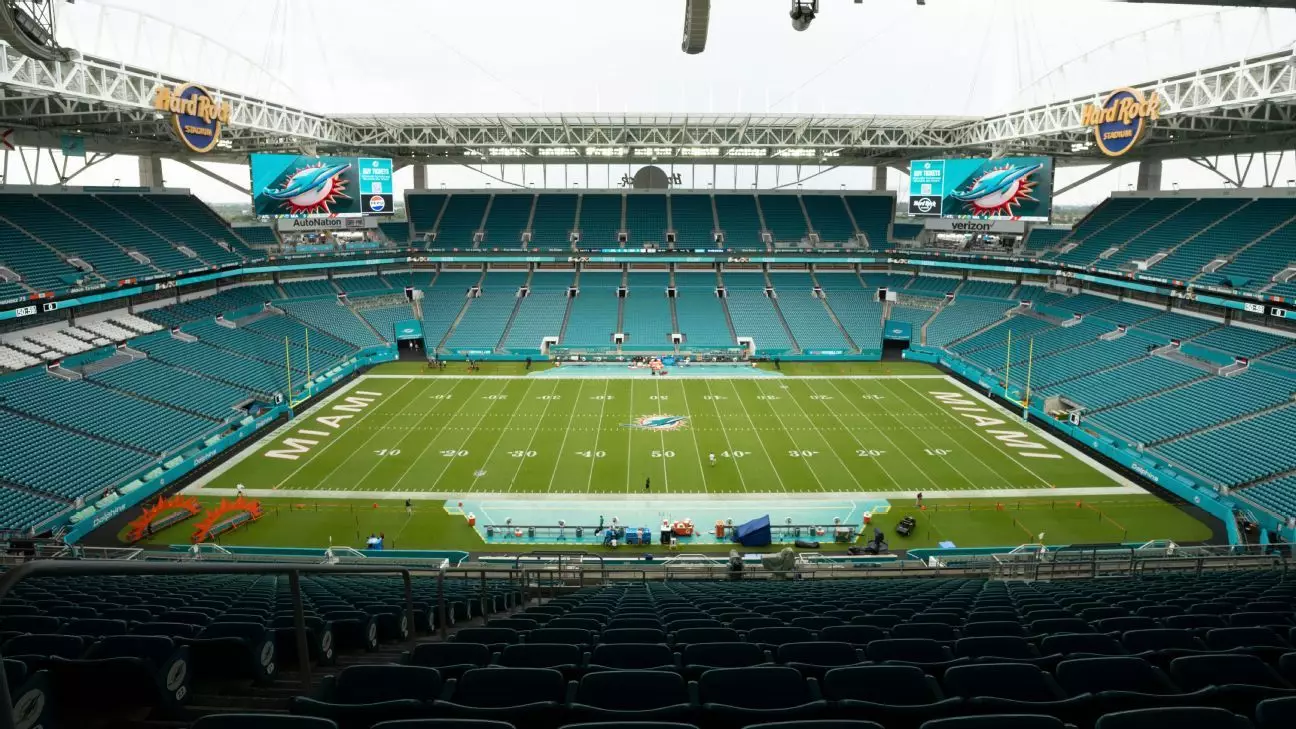LaLiga has set its sights on a groundbreaking venture: hosting a high-profile match between FC Barcelona and Atlético Madrid in Miami, projected for December. This move marks a significant step for the league, which has been advocating for international matches for several years. The initiative aims to broaden the appeal of LaLiga in the U.S. market, drawing in both local fans and international audiences. However, the realization of this plan hinges on navigating a web of regulatory approvals and stakeholder interests.
The journey towards an international fixture has not been without hurdles. Despite LaLiga’s enthusiasm, the proposal has faced steadfast opposition from various governing bodies, including the Spanish Football Federation (RFEF), FIFA, and the U.S. Soccer Federation. Each organization has shown a reluctance to endorse the idea of league matches being played outside their respective territories. Historical resistance stems not only from logistics but also from concerns about the integrity of leagues and their domestic commitments.
However, significant shifts in attitudes have emerged recently. A landmark court ruling by the U.S. Supreme Court, allowing Relevent Sports Group’s antitrust lawsuit against FIFA and U.S. Soccer to progress, suggests that the legal barriers holding back international matches may be weakening. This development has opened a dialogue that could facilitate the move, with stakeholders now considering the feasibility of Barcelona’s match in Miami.
Both FC Barcelona and Atlético Madrid have expressed enthusiasm for participating in this pioneering event, indicating their willingness to embrace the opportunity. Their commitment is crucial, as it underlines the commercial and competitive potential that such international fixtures can unlock. LaLiga president Javier Tebas has also been a vocal proponent of expanding the league’s footprint beyond Spanish borders, accentuating the financial incentives that come with popularizing the league in the vast U.S. market.
While the prospects seem brighter, the timeline poses additional challenges. The RFEF is currently in a transitional phase without a designated president until mid-December. This vacancy raises questions about the organization’s ability to grant the necessary permissions to proceed with the match. Nonetheless, sources hint that the interim board could still authorize the venture, allowing LaLiga to maintain momentum.
Even if the internal hurdles are cleared, the plans must also receive UEFA’s approval. The governing body has remained non-committal, as indicated by a recent statement noting that they have yet to be formally approached regarding the Miami match. This further complicates the logistical landscape, as LaLiga possibly faces another layer of scrutiny that could delay or obstruct the match’s execution.
The potential to host the Barcelona-Atlético Madrid match in Miami represents a transformative moment for LaLiga, indicating its ambition to become a global football powerhouse. While the roadmap is fraught with challenges—including regulatory approvals and stakeholder negotiations—the ongoing dialogue fueled by recent legal victories and the willingness of key clubs could herald a new era for league football. As the deadline approaches, fans around the world will undoubtedly keep a close eye on developments, holding their breath for an event that promises to redefine the relationship between European football and the American audience.

Leave a Reply